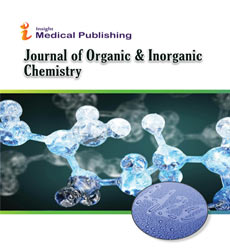Abstract
N-halosuccinimides as mediators for comprehensive direct transformation of alcohols under mild reaction conditions
The development of protocols for the transformation of organic compounds following the principles of green chemistry is currently one of the main trends in organic synthesis. Since alcohols are versatile compounds, their direct transformation under green reaction conditions would be an important process to provide useful building blocks in organic synthesis. Because of their lower leaving group ability, hydroxyl moieties are rarely substituted under mild conditions and must often be activated before treatment with nucleophiles. Numerous related methodologies have been elaborated using a sub stoichiometric amount of Brønsted acids, metals ions, Lewis/Brønsted acid combination, or other promoters. However, the requirement of toxic or expensive reagents, environmentally undesirable solvents, a high concentration of the mediator, prolonged reaction time, or high temperature make such a method less attractive from the green chemical point of view. Thus, the development of efficient, selective, and environmentally benign catalytic methodologies for comprehensive direct transformation of various alcohols for new C-C and C-heteroatom bond formation remains an attractive research subject. A group of organic compounds bearing an active N-halogen bond: N-halosuccinimides (NXSs) (chloro, bromo and iodo), are an inexpensive, commercially available, easy handling, and metal-free reagents which are widely used in organic synthesis as oxidizing, hydroxyhalogenating or halogenating agents. NXSs have recently been attracting attention in sub stoichiometric amounts for various types of organic transformations. We now report the introduction of these compounds as non-metal, commercially available and environmentally friendly mediators as a convenient method for comprehensive direct transformation of various alcohols with various types of electron-rich organic molecules or reactive anionic species forming new C-C and C-heteroatom bonds under solvent-free reaction conditions (SFRC) or under high substrate concentration reaction conditions (HCRC).
Author(s):
Njomza Ajvazi and Stojan Stavber
Abstract | Full-Text | PDF
Share this

Google scholar citation report
Citations : 150
Journal of Organic & Inorganic Chemistry received 150 citations as per google scholar report
Abstracted/Indexed in
- Google Scholar
- China National Knowledge Infrastructure (CNKI)
- Directory of Research Journal Indexing (DRJI)
- WorldCat
- Geneva Foundation for Medical Education and Research
- Secret Search Engine Labs
Open Access Journals
- Aquaculture & Veterinary Science
- Chemistry & Chemical Sciences
- Clinical Sciences
- Engineering
- General Science
- Genetics & Molecular Biology
- Health Care & Nursing
- Immunology & Microbiology
- Materials Science
- Mathematics & Physics
- Medical Sciences
- Neurology & Psychiatry
- Oncology & Cancer Science
- Pharmaceutical Sciences

